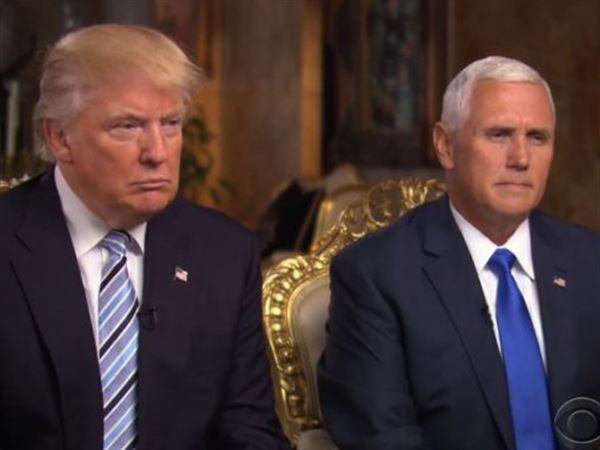Niagara-on-the-Lake is a quiet Canadian town with lots of flowers and pretty buildings. A number of historical placards inform the reader that the town was occupied in 1813 by U.S. forces who burnt it to the ground.
That happy thought, alongside accounts of American-administered mayhem this weekend in Afghanistan and Iraq and U.S. threats against Iran and Russia, prompted thought on what it means to a country to be attacked and occupied by the United States.
One where I lived that had been on the receiving end of U.S. military ministrations was Lebanon. (Another, Somalia, is a story for another day.) People in Lebanon remembered vividly the battleship USS New Jersey in 1983 firing artillery shells as big as Volkswagen Beetles into villages. The experience was not one they remembered fondly. Other, older Lebanese recalled U.S. forces coming ashore in 1957 to be welcomed by Lebanese girls in bathing suits. That incursion went more smoothly, but still constituted invasion and occupation and is remembered as such by the Lebanese.
What I think about the Iraq war is no secret and this column is not about that. The situation in Afghanistan, in terms of the impact of U.S. military action on the inhabitants, is changing. In the beginning, the government of President Hamid Karzai was installed in Kabul by the United States. Mr. Karzai's continued rule still depends to a considerable degree on some 44,000 U.S. and NATO forces. Now, the bloom seems to be going off the rose as strong U.S. military action against the Taliban and al-Qaida is claiming the lives of more Afghan civilians, including seven children killed in a U.S. air attack Sunday.
Apart from Iraq and Afghanistan, two other matters raise questions in my mind about just what we are doing overseas. One of them is what reports indicate to be an ongoing debate within the Bush administration about whether the United States should take military action against Iran. The other is the breathtakingly stupid game of chicken that the administration seems to be playing with Vladimir Putin's Russia over positioning pieces of America's nonfunctioning missile defense system on Russia's toenails in Poland and the Czech Republic.
On Iran, the nominal potential casus belli is Iran's nuclear development program, which Iran says is for energy production and the United States says could eventually be employed to make weapons. We are told that there are two factions inside the Bush administration on the subject of what, if anything, the United States should do about Iran. They are personified by Condoleezza Rice, with her allegedly rational, diplomacy-oriented Department of State, and Vice President Dick Cheney, with his more bloodthirsty war-hawks who brought us the Iraq war.
Ms. Rice is supposedly committed to pursuing negotiations with Iran, although still at arm's length, in coordination with the Europeans and the United Nations, to get them to back off their nuclear program in return for incentives. Mohamed El-Baradei, the head of the International Atomic Energy Agency who gained fame for his futile efforts to head off the Iraq war, calls the alternative, a military attack on Iran's nuclear facilities, "an act of madness."
The main advocate within the Bush administration for that act of madness, we are told, is Vice President Cheney. The most rational explanation of continued advocacy for that course of action is the maintenance of a sort of carrot-and-stick administration strategy toward Iran that says, "Here is what you get if you play ball and here is what you get if you don't." It is also said that some Israeli leaders are nipping at the administration's flanks to do something about Iran.
There are at least three problems with such a strategy. One is that it is extremely unlikely to work with the theocratic Shiite regime in Tehran. Some Shiites cave in the crunch. I remember the relatively moderate Amal movement in Lebanon in the 1980s as an example. But Shiites as a group also sometimes have an unfortunate and dangerous tendency toward martyrdom in the face of opposition. Their principal saint is the Imam Hussein, killed at the battle of Karbala in 680 A.D., still commemorated every year by bloody self-flagellation.
The second problem is that the United States is stretched close to the breaking point militarily, with Iraq, Afghanistan and other military enterprises currently under way. The tone of the American people on the subject of new military involvement is almost certainly negative, to the point that it is hard to imagine a new war that would inspire them to consider it worth waging.
The third problem is that taking out Iran's nuclear program -- whether it were done by the United States or Israel or both -- would be difficult. Bombing it means finding it first and then risking what Iran might undertake in response. In my mind, such an assault would be just plain stupid.
Stomping on Russia's toes at this point with a missile defense system that doesn't work while trying to sell the Russians on the idea that it is aimed at Iran and North Korea rather than at them -- even though its installations are right on its borders -- strikes me as unnecessary to the point of folly. Why do that rather than develop further what started out at the beginning of Mr. Bush's term of office as a promising political relationship with the Russian leader?
The only answer I can come up with is that there are big defense contracts involved in building missile facilities in different parts of the United States and abroad that would have to be dumped if the so-called missile defense program were abandoned. A certain amount of Mr. Bush's administration's activities have amounted to shoveling large amounts of the taxpayers' money from government pockets into those of contractors and campaign donors like Halliburton, Bechtel, Lockheed-Martin and Boeing through wars and other activities. Perhaps the missile system is one more. The question is why it has to be done in such a way as to agitate the Russians?
First Published: June 19, 2007, 10:00 p.m.















